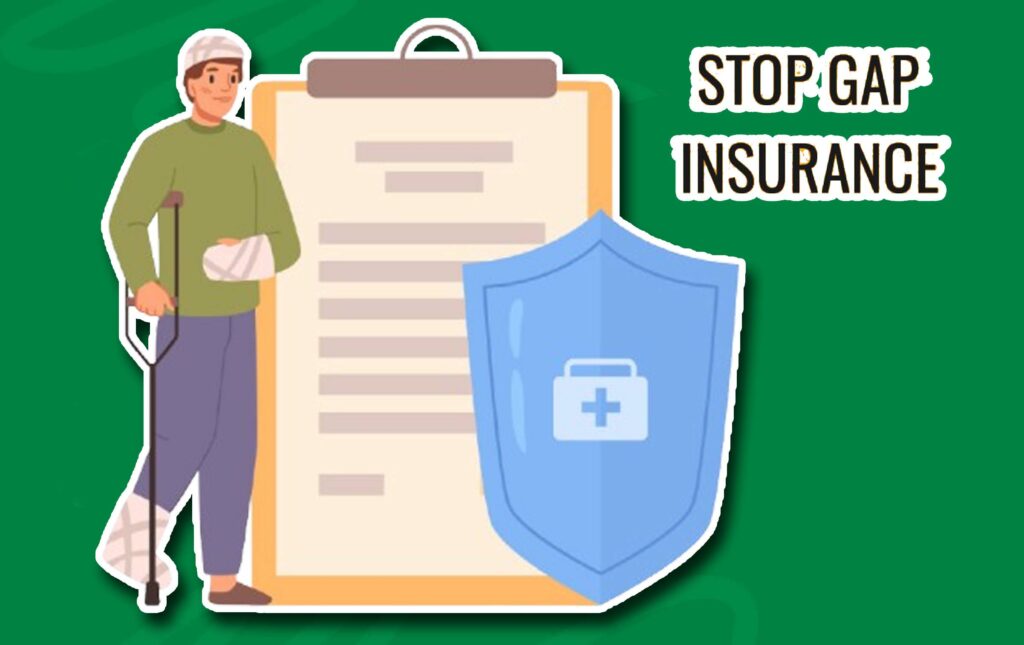Most individuals find it hard to understand what Stop Gap coverage is, as well as how it works and why it is needed. Stop-gap coverage is a type of insurance employers buy to address potential gaps or limitations in their workers’ compensation policies. Also known as employer liability insurance, it protects against lawsuits related to employee bodily injuries. This coverage is sometimes referred to as stop-loss insurance or excess loss insurance.

This insurance offers financial protection to businesses as well as their insured entities against several issues. This coverage is connected to employee health insurance plans. It is purchased as a standalone policy to cover the gaps in your workers’ compensation insurance.
How Does it Work?
Generally, workers’ compensation insurance offers benefits to employees who have sustained work-related injuries or illnesses. It pays lost wages, medical costs, and other related expenses, but this insurance is different in every monopolistic state. This means businesses are legally required to purchase workers’ compensation insurance through state funds.
However, this insurance is often limited; it may not be enough to offer coverage. In cases like this, Stop Gap coverage is vital to keep the employer protected if a lawsuit is filed for a work-related accident that is not completely covered by your insurance.
Why Do I Need to Buy Stop Gap Coverage?
Employers who are located in monopolistic states need to look into getting Stop Gap insurance coverage. In these states, the government has the overall control and authority over most parts of life and the economy within its territory.
This, however, means workers’ compensation insurance is provided by the government, while private insurance companies are not allowed to sell this coverage. The government uses state funds to compensate employees for any work-related issues. These monopolistic states include:
- Ohio.
- Wyoming.
- North Dakota.
- Washington.
Plans purchased through monopolistic state funds can help workers who are in recovery after work-related injuries and illnesses. For this reason, you will need to purchase this coverage as a standalone policy.
Is Stop Gap Coverage Compulsory?
Most states attach this coverage to your worker’s compensation policy automatically. For this reason, it is compulsory for all employers in most states. If your business works out of a monopolistic state, Stop Gap coverage will not be added to your policy automatically.
This is because these states require employers to have workers’ compensation policies through state funds. However, in cases like this, it is up to employers to purchase this coverage themselves.
What Does it Cover?
This coverage covers several lawsuits employers are likely to face from their employees. These suits include public tort claims, health and injury claims, deliberate endangerment, and dual capacity claims. This coverage ensures the employer remains covered even after reaching their workers’ compensation policy limits.
What Does Stop Gap Coverage Not Cover?
This coverage covers quite several events, but there are certain events it does not cover. It is important to note these exclusions while purchasing this coverage. Stop-gap insurance coverage does not cover the following events:
- Deliberate acts: Illnesses and injuries due to intentional acts of the employer or the employee are not covered.
- Fraudulent acts: If the employer or employee takes part in fraudulent acts that are connected to the workers’ compensation claim, it will not be covered by this coverage.
- Property damage: Property damage is generally not covered by Stop Gap insurance coverage.
- Criminal acts: Illnesses or injuries sustained as a result of criminal activities or law violations by the employer or employees will not be covered by this coverage.
- Employment practice liability: this coverage does not cover employment practice liabilities such as unjust termination, discrimination, harassment, and other employment-related issues.
- Non-worker compensation liabilities: Other types of liabilities that are not workers’ compensation related are not covered by this coverage.
As long as your business is operating legally and your employees’ best interests are kept in mind, you may not need to bother about these limitations.
How Can I Get Stop Gap Coverage?
This insurance can be gotten from an insurance company that offers an endorsement for Stop Gap coverage. To purchase this liability coverage, business owners can get a business insurance endorsement from an insurance company.
However, general liability insurance offers several coverages that shield your business against lawsuits resulting from bodily injuries and property damage to others.



